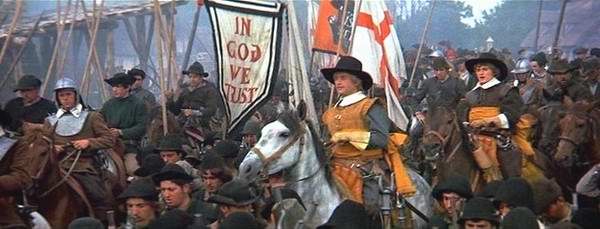 As I stated in the beginning of this blog series Luke intends his gospel to be a historical recording of the events leading to the birth, life, death, and resurrection of Jesus Christ. We do a great disservice to the writer of Luke's gospel if we do not come to this work with the mindset of the intent of the author. (This would be a good idea for someone to blog about but we must understand that their is a great intellectual arrogance and cynicism in our current age that tends to make us look at the writers of the Old and New Testament as slightly naive and ignorant people. We feel almost the need to see them almost as children, simply products of their age, in a very paternalistic way and that they were not able to "see" the reality that surrounded them.) In keeping with the chronological focus that Luke takes after introducing his Gospel in chapter 1:1-4, he foretells the birth of John the Baptist, fulfilling Malachi 4:5. This shall be what I focus on in this post.
As I stated in the beginning of this blog series Luke intends his gospel to be a historical recording of the events leading to the birth, life, death, and resurrection of Jesus Christ. We do a great disservice to the writer of Luke's gospel if we do not come to this work with the mindset of the intent of the author. (This would be a good idea for someone to blog about but we must understand that their is a great intellectual arrogance and cynicism in our current age that tends to make us look at the writers of the Old and New Testament as slightly naive and ignorant people. We feel almost the need to see them almost as children, simply products of their age, in a very paternalistic way and that they were not able to "see" the reality that surrounded them.) In keeping with the chronological focus that Luke takes after introducing his Gospel in chapter 1:1-4, he foretells the birth of John the Baptist, fulfilling Malachi 4:5. This shall be what I focus on in this post.The entire backstory of the birth of John the Baptist is full of so many intricacies and intertextual echoes that it would take a book to flush them all out. Most interesting is in verse 17 where Luke makes it perfectly clear that the reason for the birth of John the Baptist is that he is fulfilling the promise of the prophet Malachi that Elijah would come again. Malachi says in chapter 4, verses 5 and 6:
Behold, I am going to send you Elijah the prophet before the coming of the great and terrible day of the Lord. He will restore the hearts of the fathers to their children and the hearts of the children to their fathers, so that I will not come and smite the land with a curse.Now why is it important that Elijah be the one Malachi prophecies will come again and why is it that Luke makes sure we recognize the link between John the Baptist and Elijah? Calvin says in his commentary that:
17. And he shall go before him By these words he points out what would be John’s office, and distinguishes him by this mark from the other prophets, who received a certain and peculiar commission, while John was sent for the sole object of going before Christ, as a herald before a king. Thus also the Lord speaks by Malachi,So in the words of John Calvin the reason for the Elijah reference is for what reason? It is not because John the Baptist is Elijah but because John is to be set apart from the other Old Testament prophets (for those of you wondering John the Baptist is the last of the OT prophets) because of his call and vocation.“Behold, I will send my messenger, and he shall prepare the way before me,”
(Malachi 3:1.)In short, the calling of John had no other design than to secure for Christ a willing ear, and to prepare for him disciples. As to the angel making no express mention of Christ in this passage, but declaring John to be the usher or standard-bearer of the eternal God, we learn from it the eternal divinity of Christ. With the spirit and power of Elijah By the words spirit and power, I understand the power or excellency of the Spirit, with which Elijah was endued; for we must not here indulge in a dream like that of Pythagoras, that the soul of the prophet passed into the body of John, but the same Spirit of God, who had acted efficaciously in Elijah, afterwards exerted a similar power and efficacy in the Baptist. The latter term, power, is added, by way of exposition, to denote the kind of grace which was the loftiest distinction of Elijah, that, furnished with heavenly power, he restored in a wonderful manner the decayed worship of God; for such a restoration was beyond human ability. What John undertook was not less astonishing; and, therefore, we ought not to wonder if it was necessary for him to enjoy the same gift.












No comments:
Post a Comment